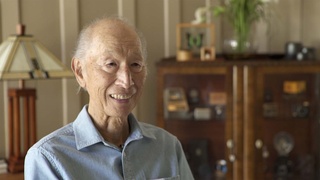Interviews
How Title IX Changed Her Life
In 1972, when Title IX was passed—and this is the 50th anniversary of Title IX—the University of Hawaii had no women’s athletic teams. There was no girls high school basketball league in Hawaii. I grew up playing basketball at least through high school. I even played on the US military women’s team because back then there were not enough U.S. military women, so they let dependents play. So I played on the US military women's team also, so I played a lot of basketball in high school.
I came to the University of Hawaii. They had the first intercollegiate women’s basketball team. I tried out, I made the team, and after having paid nonresident tuition, I was given a scholarship and I had no idea why. And I learned it was because of Title IX and I learned it was because of this Japanese-American woman, the first woman of color to serve in the United States Congress who advocated for Title IX, major sponsor and really advocated especially for the continuation of athletics, to be included in Title IX.
And so that really impacted me, you know, personally. But basketball became a really, really important part of my life because I was playing basketball for the University of Hawaii. And thanks to basketball and Title IX, I got a scholarship.
Date: July 14, 2022
Location: California, US
Interviewer: Lana Kobayashi
Contributed by: Watase Media Arts Center, Japanese American National Museum; Japanese American Bar Association

